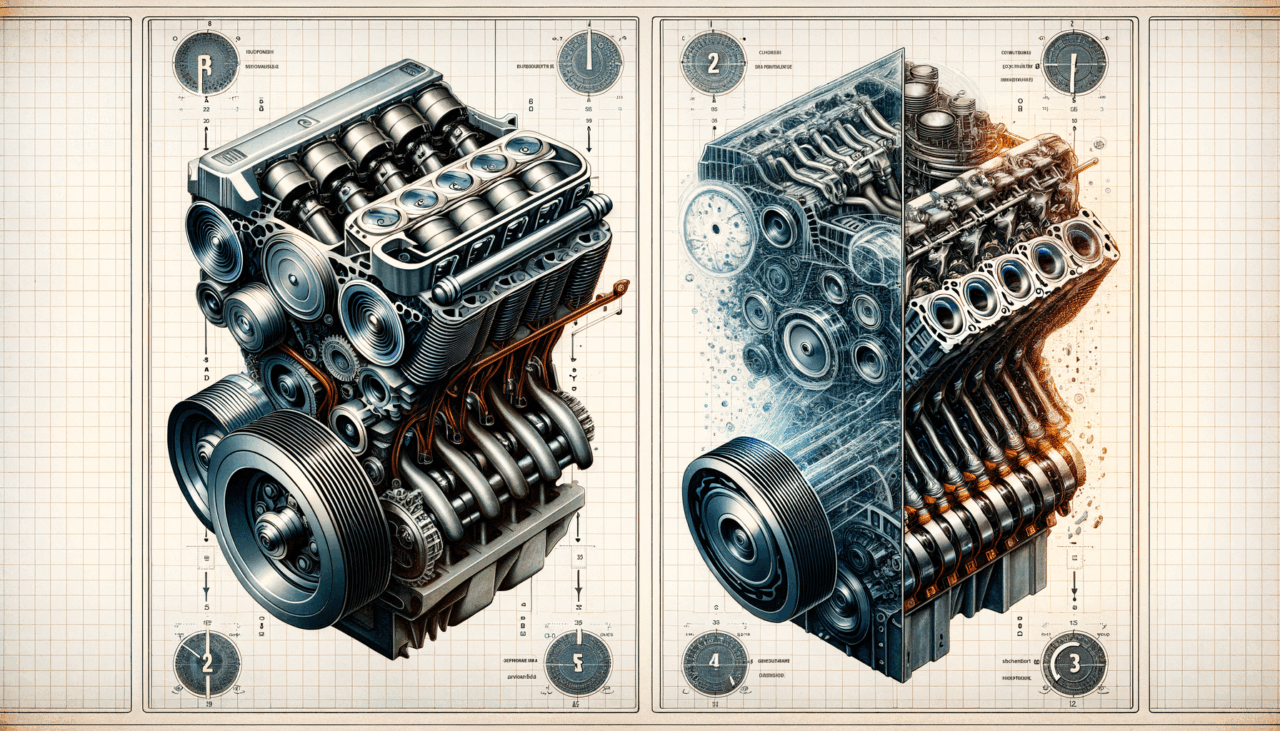In the great pantheon of engine debates, the tussle between the 3-cylinder and the 4-cylinder engine is both timeless and timely. If you’re finding yourself at the crossroads of choosing between these two engine types, you’ve come to the right place. In this article, I’ll be dishing out the technical specs with the warmth of a good Aussie barbecue. So, grab a cuppa and let’s dive into the world of cylinders!
Characteristics of 3-Cylinder Engines
Fuel Efficiency
Ah, the 3-cylinder engine, the little engine that could! These engines are typically found in smaller vehicles and are renowned for their fuel efficiency. Thanks to fewer moving parts, they consume less fuel, making them an eco-friendly choice.
Weight and Size
A 3-cylinder engine is like the nimble kangaroo of the engine world—light and compact. This smaller size translates to less weight, which can enhance the vehicle’s overall performance and handling.
Power Output
Here’s where things get interesting. While 3-cylinder engines may lack the raw power of their 4-cylinder counterparts, advancements in turbocharging technology have significantly upped their game. You’ll find some of these engines punching well above their weight class.
Vibration
Let’s be honest, 3-cylinder engines can have a bit of a shake, rattle, and roll. The odd number of cylinders can lead to more vibration, but modern engineering has made strides in minimizing this quirk.
Cost
Fewer cylinders generally mean a lower cost to produce and maintain. This makes 3-cylinder engines an attractive option for budget-conscious buyers looking for reliable performance without breaking the bank.
Characteristics of 4-Cylinder Engines
Power and Performance
If the 3-cylinder is the kangaroo, then the 4-cylinder is the workhorse. Known for delivering a balanced blend of power and efficiency, 4-cylinder engines are the go-to choice for a wide range of vehicles, from sedans to sports cars.
Smooth Operation
With an even number of cylinders, 4-cylinder engines tend to run smoother than their 3-cylinder counterparts. This translates to a more comfortable driving experience, especially on long trips across the Outback.
Versatility
4-cylinder engines are as versatile as a Swiss army knife. Whether you’re looking for a daily driver or something with a bit more zip, there’s a 4-cylinder engine out there to meet your needs.
Fuel Efficiency
While they’re not quite as fuel-efficient as 3-cylinder engines, 4-cylinder engines still offer impressive mileage, especially when paired with modern technologies like direct injection and turbocharging.
Cost
Though typically more expensive than 3-cylinder engines, the 4-cylinder offers a solid balance of performance and economy that justifies the extra investment for many drivers.
Comparative Table: 3-Cylinder vs. 4-Cylinder Engines
| Feature | 3-Cylinder Engine | 4-Cylinder Engine |
|---|---|---|
| Fuel Efficiency | High – Ideal for city driving and eco-conscious | Moderate – Good for longer distances |
| Weight & Size | Lightweight and compact – Better handling | Heavier but more stable |
| Power Output | Moderate – Turbocharged options available | High – Stronger and more consistent |
| Vibration | Higher – Can be noticeable | Lower – Smoother operation |
| Cost | Lower – Economical to produce and maintain | Higher – More components, but balanced performance |
| Versatility | Limited – Best for smaller vehicles | High – Suitable for a wide range of vehicles |
So, What’s More Reliable?
When it comes to reliability, the choice between a 3-cylinder and a 4-cylinder engine boils down to your specific needs and driving habits. If you’re after something that’s light on fuel and perfect for zipping around the city, the 3-cylinder engine could be your best mate. On the other hand, if you need a bit more grunt and a smoother ride, the 4-cylinder engine might be the way to go.
In the end, it’s all about finding the right balance. Like a good Aussie pavlova, it’s the combination of ingredients that makes all the difference. Whether you go for the efficiency of a 3-cylinder or the power of a 4-cylinder, both engines have proven themselves as reliable options for drivers around the world.
I hope this guide has cleared the air a bit on the 3-cylinder vs. 4-cylinder debate. Remember, the best engine for you is the one that suits your style and needs. Happy motoring!

Comments (0)
There are no comments here yet, you can be the first!